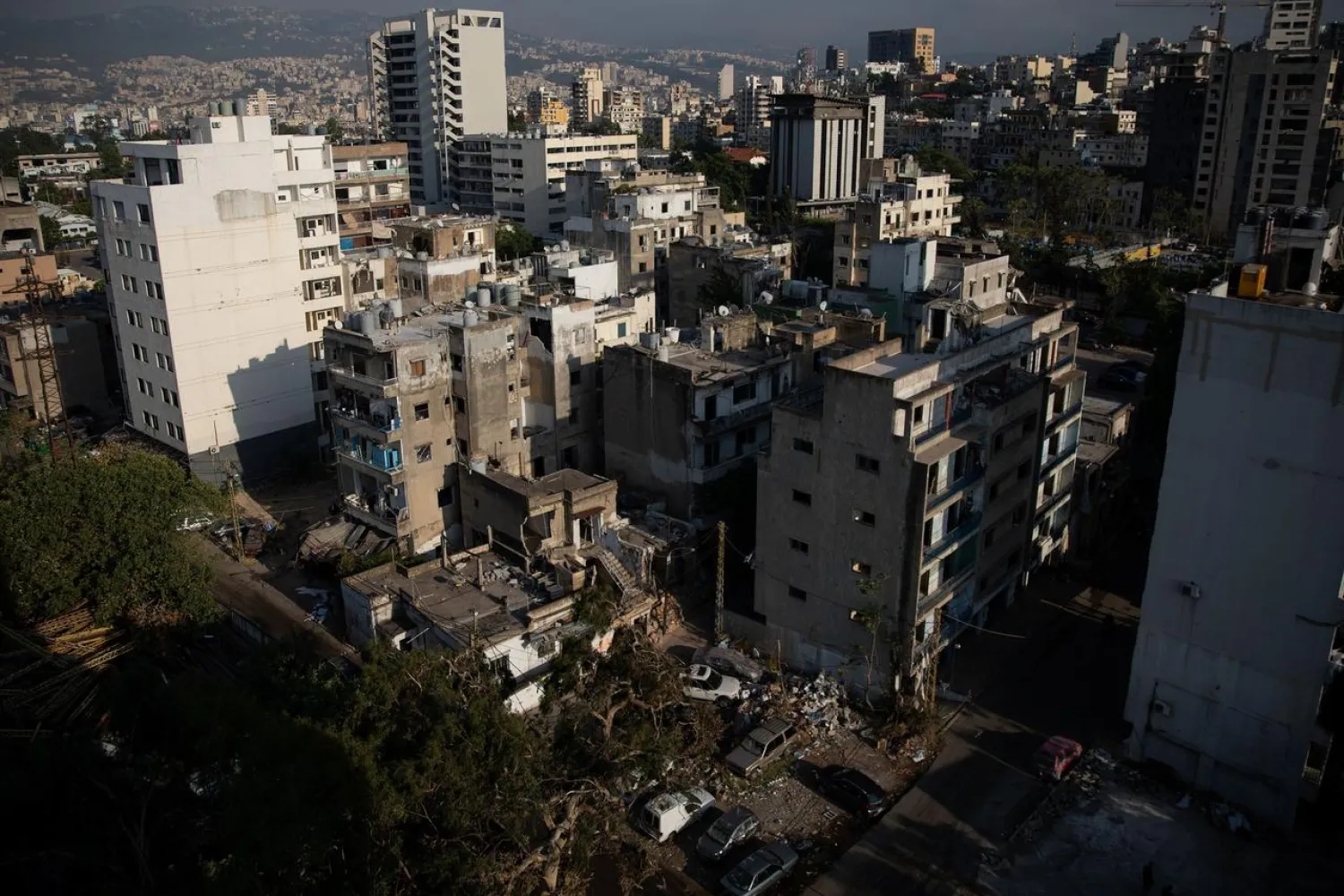Claudette Halabi cried out from beneath the rubble of her house for an hour before she died. The neighbors couldn’t save her.
“We kept hearing the screams. I heard her voice. But we couldn’t do anything. It still hurts,” said Johnny Khawand, near the remains of her Beirut building. The thundering blast at the port last week had crushed its three floors.
Khawand, born 40 years ago in the same neighborhood, stayed up all night for the rescue operation. Four died in that building alone, among them Claudette, a widow in her 70s he knew since he was a kid.
In one of Beirut’s poorest neighborhoods, Karantina near the port, people are still reeling from the explosion that flattened homes and killed many neighbors who felt like family.
Everyone knows everyone. Everyone cried when they recalled the explosion.
A week later, the neighbors are struggling to find the money to rebuild, without help from the state in a city that was already deep in economic collapse.
The warehouse explosion killed at least 172 people, wounded thousands and ravaged entire districts. It shattered walls and ripped out balconies in Karantina, a neglected part of the capital.
The cluster of streets, with a slaughterhouse and a waste plant, saw one of the bloodiest massacres of Lebanon’s 1975-1990 civil war.
Many said the blast did more damage in a few seconds than 15 years of war. With the wreckage at their doorstep once more, families who have spent decades in Karantina have camped out in their apartments. They sleep on the floor or on ripped couches, without doors or windows, not sure how to go on.
‘Our life savings’
“I’m in a nightmare I can’t wake up from. I still can’t believe I’m looking at my mother’s coffin,” said Claudette’s son, George Halabi, who flew in for her funeral.
At the church cemetery, the blast had blown the doors off family mausoleums, sending a stench that encircled mourners.
“It’s a crime against all of Lebanon,” Halabi said. “My mother survived the war.”
Like many Lebanese, he blamed the sectarian elite that has ruled since the war for pushing the country to ruin.
With the blast under investigation, officials have pointed to a huge stockpile of explosive material stored in unsafe conditions at the port for years.
Months before the warehouse blew up, a currency crash had wiped out Tony Matar’s savings from his family’s linens store.
“Our life’s savings are in this house,” said Matar, 68, whose grandfather was born in Karantina. “It was a paradise.”
The shockwaves brought doors, closets, and chairs crashing on his daughter Patricia, 25. She had travelled to Beirut for her sister’s wedding, and her broken bones will take months to recover.
“Every time I come back home, I relive that moment. I remember how my daughter fell and I cry,” said Tony’s wife Souad, clad in black.
Her mother had died from cancer just days before. “I didn’t even have time to mourn her,” she said. “Can you imagine I thanked God she passed away? So that she did not have to see this.”
A child’s trauma
Abdou Batrouni, a fisherman, lost his small savings, stashed in a closet in a bedroom that was blown to pieces.
His family has relied on donations and young volunteers who flocked to help from across the country. He and others said no officials visited the district, historically a place where refugees settled, which later also became home to some Syrian families and migrant workers.
Batrouni’s wife had shielded their two sons, nine and three years old, with her body. They got out without a scratch, but he found one of the boys, Elie, crouched down, yelling “I don’t want to die, I don’t want to die.”
“Now if I just clap, he gets startled and bursts into tears.” The first night, they all slept next to each other on a mattress at the doorless entrance.
Around every corner, neighbors told stories of loss but also bravery. A man who threw himself on his daughter needed dozens of stitches. A woman carried her elderly mother and hid her between two closets.
“We all grew up together, we saw each other get married,” said Hoda Jouni, who runs a minimarket. “We lost everything.”














